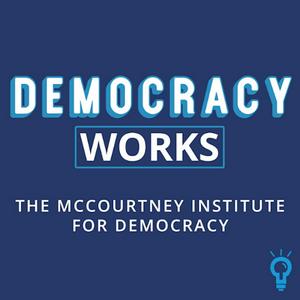AI is changing many aspects of our lives, so it's reasonable to expect that it will impact democracy, too. The question is how? Two experts in technology and politics join us to discuss how we can harness AI's power to strengthen democracy. Yes, there will be deepfakes and automated misinformation, but there can also be greater opportunities for the government to serve people and for all of us to have a greater say in our systems of self governance.
In their book Rewiring Democracy: How AI Will Transform Our Politics, Government, and Citizenship, Bruce Schneier and Nathan E. Sanders describe how AI could change political communication, the legislative process, bureaucracy, the judiciary, and more. It's a more hopeful argument than you might expect. They discuss how AI’s broad capabilities can augment democratic processes and help citizens build consensus, express their voice, and shake up long-standing power structures. As they say in the interview, AI is just a tool; how we use it is up to us.
Schneier is a security technologist and the New York Times bestselling author of 14 books, including A Hacker’s Mind. He is a lecturer at the Harvard Kennedy School, a board member of the Electronic Frontier Foundation, and Chief of Security Architecture at Inrupt, Inc.
Sanders is a data scientist focused on making policymaking more participatory. He has served in fellowships at the Massachusetts legislature and the Berkman-Klein Center at Harvard University.
Related Episodes
The Problem(s) with Platforms (Cory Doctorow)
Building Better Bureaucracy (Jennifer Pahlka)
Laboratories of Restricting Democracy (Virginia Eubanks)
Hosted by Simplecast, an AdsWizz company. See pcm.adswizz.com for information about our collection and use of personal data for advertising.


